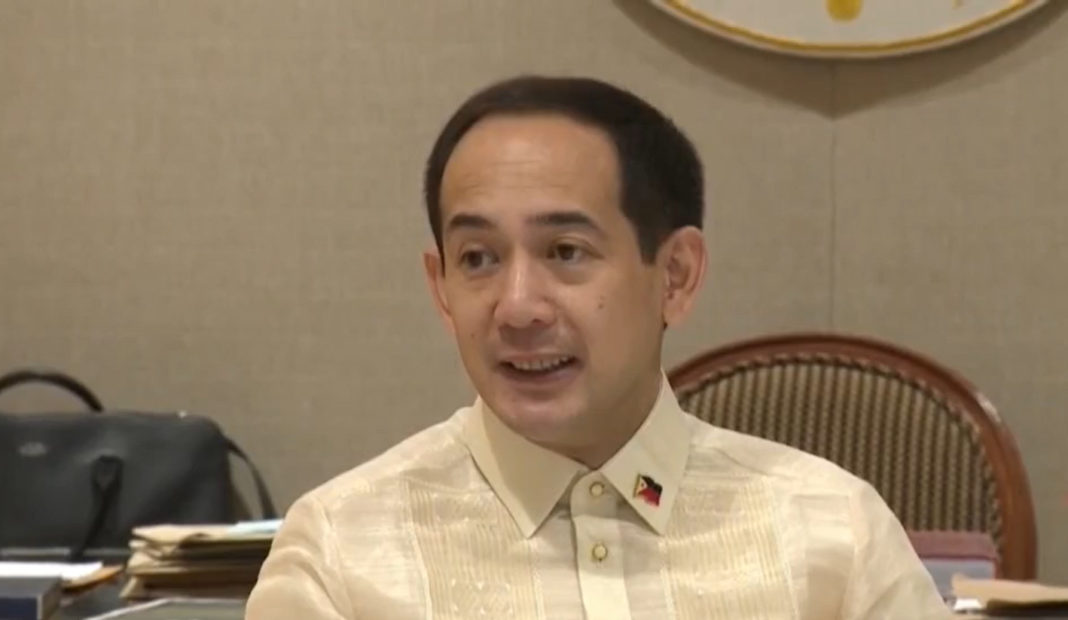The office-holder has been nicknamed the “Little President” due to the nature of the position. It was given the mandate “to directly assist the President in the management of affairs of the government as well as to direct the operations of the Executive Office.” The Executive Secretary is often called the “Little President” because of the immense power that the position holds.
The Executive Secretary also has the power to sign papers such as executive orders “by authority of the President,” and decide on matters for and on behalf of the President if they don’t require the Chief Executive’s personal attention.
The post of Executive Secretary has been held by distinguished men since it was created in 1936. Lawyer Jorge Vargas, the first Executive Secretary, was appointed by President Manuel Quezon after serving as chief clerk of the Department of Interior and legislative secretary to then-Speaker Sergio Osmeña.
Manuel Roxas, the fifth President of the Philippines, also served as Quezon’s Executive Secretary from December 1941 until March 1942, just a month before he was captured by Japanese forces.
Experience is a major consideration in appointing the “Little President.” The Executive Secretary needs to hit the ground running, with barely any time to learn how to navigate the labyrinthine maze of the bureaucracy. Owing to the demands of the job, past Presidents picked Executive Secretaries who had proved their mettle through the posts they’ve held over the years.
Ernesto Maceda, a cum laude graduate of the Ateneo Law School, served as councilor of Manila—and was named Outstanding Councilor— before becoming the youngest Cabinet member of then-President E. Marcos as Secretary of Community Development at 29 years old. He served as Marcos’ Executive Secretary in a concurrent capacity as Chairman of the Commission on Reorganization from July 1969 to February 1970.
It is well known that Joker Arroyo held the record as the human rights lawyer who handled the most number of cases between 1972 and 1986 before becoming then-President Corazon Aquino’s first Executive Secretary in 1986. Franklin Drilon served as Labor Secretary for three years and Justice Secretary for one year before his appointment as Aquino’s Executive Secretary in 1991.
Teofisto Guingona, who went on to become Vice President under the Arroyo administration, served as senator for six years before his appointment as Executive Secretary. He also chaired the Commission on Audit from 1986 to 1987. Ronaldo Zamora worked under the Marcos and Aquino administrations prior to becoming President Joseph Estrada’s first Executive Secretary from 1998 to 2000.
The longest-serving Executive Secretaries were appointed in the past three administrations: Eduardo Ermita, Paquito Ochoa, and Salvador Medialdea held the post for six years under Presidents Gloria Arroyo, Benigno Aquino III, and Rodrigo Duterte, respectively. Both Ochoa and Medialdea were lawyers while Ermita was a three-term congressman from Batangas who also handled the national defense portfolio under Arroyo.
Compared to his many of his predecessors, Vic Rodriguez’s resume comes up woefully short. He was barangay captain of Sacred Heart in Quezon City for 10 years before becoming special assistant to the chief of the Business Permits and Licensing Office in 2002 under then-Quezon City Mayor Feliciano Belmonte Jr. He later became the officer-in-charge of the city’s Community Relations Office.
Rodriguez rose to prominence when he became a spokesperson and chief of staff of Ferdinand Marcos Jr. in the run-up to the 2022 elections. He was named Executive Secretary shortly after Marcos won as President.
The administration’s recent blunders have shown Rodriguez’s ineptness for the job. The appointment of Archipelago Philippines Ferries-FastCat owner Christopher Pastrana as Philippine Ports Authority General Manager has been met with criticism owing to a perceived conflict of interest and his company’s supposed P132-million debt to the Department of Transportation. So far, Pastrana’s appointment remains in limbo. Transportation Secretary Jaime Bautista has instead designated a long-serving ports manager to become PPA’s officer-in-charge GM until further notice.
Former Energy chief Raphael Lotilla’s appointment also hit a snag as Malacañang appeared to have been remiss in vetting his credentials. Republic Act 7638 or the Department of Energy Act of 1992 prohibited the appointment of an Energy Secretary who used to be an officer of a private company engaged in the energy industry within two years from his resignation or retirement.
Lotilla, however, was an independent director of Aboitiz Power Corp., and the oil and gas exploration firm ACE Enexor. The Department of Justice later affirmed his nomination as “valid and lawful,” but not after the Palace’s head-scratching clarification that Lotilla’s appointment was a “nomination” for now.
Rodriguez’s hand was also seen in Marcos’ veto of the bill creating the Bulacan Airport City ecozone, which disappointed lawmakers and investors. He claimed there were “defects” that should be remedied by passing entirely new legislation.
Philippine Star columnist Jarius Bondoc said there’s no one but Rodriguez to blame for the administration’s recent snafus. “From murmurs in Malacañang, Rodriguez had it coming. Supposedly he re-centralized his office functions formerly dispersed to other units. That made him powerful if overloaded,” Bondoc said.
Consider how influential and powerful ES Rodriguez is. He has to vet at least 8,000 presidential appointees by himself. Those must be fielded fast to dozens of agencies and commissions under the Office of the President. Plus, as the various departments, bureaus, boards, councils, authorities, and government-owned and -controlled corporations. No wonder the announcement of appointments is moving at a snail’s pace, with a number of key vacancies still unfilled.
For all his talk about being close to Marcos, one would think Rodriguez wants nothing more than the administration to succeed. No one else but Rodriguez must take the fall for conflicted appointees, contradictory announcements, and controversial actions. But he seems bent on bringing his principal down, one wrong decision at a time.
Hopefully, Marcor Jr. avoid blunders as he is still enjoying the 100-day honeymoon tradition to adjust to the rigors of office.
Photo Credit: https://www.pna.gov.ph/articles/1179552













